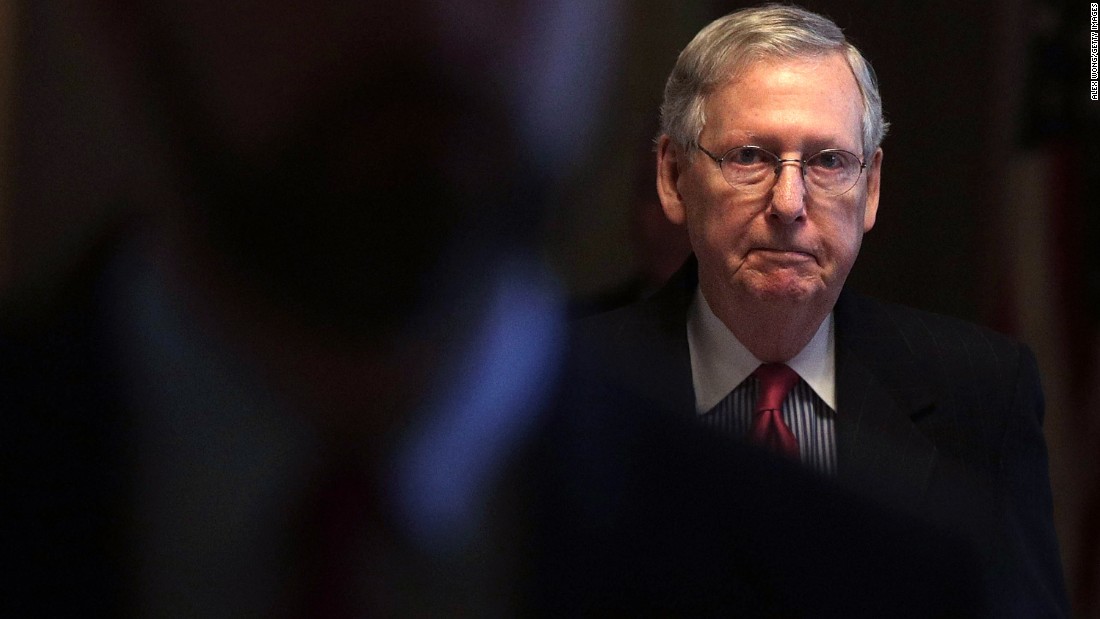Analysis: The filibuster is already dead - 5 minutes read
 The filibuster is already (probably) dead
The filibuster is already (probably) deadIn each episode of his weekly YouTube show, Chris Cillizza will delve a little deeper into the surreal world of politics. Click to subscribe!
"The Senate is now a place where the most pressing issues facing our country are disregarded, along with the will of the American people overwhelmingly calling for action. The future of our country is sacrificed at the altar of the filibuster.
"Something must change. That is why I am now calling on the Senate to abolish the filibuster in all its forms. And I am calling on candidates seeking the Democratic nomination for president to do the same."
The Nevada Democrat's piece drew tons of buzz. But in truth, the filibuster -- the requirement that any piece of legislation get 60 votes in order to end the Senate's unlimited debate and bring it to a simple majority vote -- has been dying a not-that-slow death for the past six years. And Reid is the man who started down that slippery slope.
Back in 2013, frustrated by Senate Republicans' blockade of then-President Barack Obama's judicial nominees, Reid changed the filibuster rules to not apply to federal judgeship below the Supreme Court level. (All federal judges have to be confirmed by the Senate.)
As Reid writes: "Because of this change, we were able to confirm more of President Obama's judicial nominees than we would have been able to otherwise, leaving President Trump fewer vacancies to fill."
The decision was cheered by liberals who had long bristled at what they viewed to be an arcane Senate rule that was being purposely abused by Republicans in an act of bad faith. Other longtime Senate observers were less sanguine, noting that Reid had opened a Pandora's box. If he was willing to get rid of the most sacred rule of the Senate under some circumstances -- ending the filibuster is known as the "nuclear option" for a reason -- it would only be a matter of time before other Senate leaders -- *cough* Republicans *cough* -- would decide to end the filibuster rule for other matters.
allegations that arose And decide they did! In 2017, Senate Majority Leader Mitch McConnell (Kentucky) announced that he was getting rid of the filibuster on Supreme Court nominees, too. That move allowed President Donald Trump to till two Supreme Court vacancies with appointees -- Neil Gorsuch and Brett Kavanaugh -- who almost certainly would not have been confirmed if the 60-vote filibuster threshold was in effect. (Gorsuch might have made it; Kavanaugh, given the allegations that arose during his confirmation hearings, would definitely have not been confirmed.)
"It is time for this sorry chapter to end," McConnell said on the Senate floor in changing the rules in April 2017. "It is time to return this body to a more normal and reasonable process for fulfilling its constitutional responsibilities no matter which party controls the White House."
Those two moments -- the first by Reid in 2013 the second by McConnell in 2017 -- mortally wounded the filibuster. Yes, it has limped on for legislative business that does not deal with judicial confirmations. And it may continue to do so for the next two or four or even six years.
In the words of Milhouse Van Houten But the filibuster is on borrowed time. Once the seal is broken, the genie is out of the bottle, the -- well you get the idea -- there's no going back. In the words of Milhouse Van Houten : "We're through the looking glass here, people."
The filibuster is almost certainly dead -- even if most people don't know it yet.
Source: CNN
Powered by NewsAPI.org
Keywords:
Filibuster • YouTube • Chris Cillizza • United States Senate • Filibuster • United States Senate • Filibuster • Democratic Party (United States) • President of the United States • Nevada • Democratic Party (United States) • Filibuster • Bill (law) • United States Senate • Majority • Majority • Harry Reid • Slippery slope • United States Senate • Republican Party (United States) • Barack Obama • Federal judiciary of the United States • Nomination • Harry Reid • Filibuster • United States federal judge • Supreme Court of the United States • United States federal judge • Advice and consent • Harry Reid • Barack Obama • Federal judiciary of the United States • Nomination • Donald Trump • Judgment (law) • Liberalism • Standing Rules of the United States Senate • Republican Party (United States) • Act of Congress • Bad faith • Harry Reid • Pandora's box • United States Senate • Filibuster • Nuclear option • United States Senate • Republican Party (United States) • Filibuster • United States Senate • Majority leader • Mitch McConnell • Kentucky • Filibuster • Supreme Court of the United States • Donald Trump • Supreme Court of the United States • Neil Gorsuch • Brett Kavanaugh • Filibuster • United States Senate • Norm (social) • Norm (social) • Reason • Scientific method • United States Constitution • Moral responsibility • Matter • White House • First Amendment to the United States Constitution • Thomas Reid • Mitch McConnell • Filibuster • Milhouse Van Houten • Filibuster • Jinn • There's No Going Back • Milhouse Van Houten • Through the Looking-Glass • Filibuster (military) •